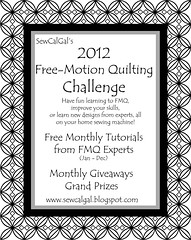Music and Delay of Dementia….VERY INTERESTING!!!!
Posted By drsao on April 21, 2011
Shall we all take time out from quilting and crafting to learn an instrument? What musical instrument do you play? I took piano, organ, accordion and flute lessons – HM – VERY INTERESTING! I think we should do a study on the effects of quilting and social support on delay of dementia!!!
April 20, 2011 5:21 PM
Can music delay dementia? What new study says
 (Credit: istockphoto)
(Credit: istockphoto)
(CBS) Are flats and sharps the keys to mental sharpness? Preliminary research now links music lessons in childhood to greater mental acuity decades down the road.
For a study published in the journal Neuropsychology, researchers recruited 70 healthy adults between 60 and 83 years of age and divided them into three groups based upon the extent of their musical background. Those who had studied an instrument or learned how to read music performed better on cognitive tests than those with no musical background.
“Musical activity throughout life may serve as a challenging cognitive exercise, making your brain fitter and more capable of accommodating the challenges of aging,” lead researcher Dr. Brenda Hanna-Pladdy, a clinical neuropsychologist at Emory University, said in a written statement. “Since studying an instrument requires years of practice and learning, it may create alternate connections in the brain that could compensate for cognitive declines as we get older.”
The study didn’t actually prove that musical study somehow protects brain function during old age, only that it is associated with better brain function. It’s believed to be the first to demonstrate that the benefits of musical activity extend across a lifetime. Previous research confirmed that such activity has benefits during childhood, according to the statement.
The musicians who participated in the study were all amateurs who began playing an instrument around age 10. Most studied piano, though some studied woodwinds, strings, percussion, or brass instruments.
Some participants still played an instrument at the time of the study, but they didn’t perform any better on the cognitive tests than others who had stopped playing. That suggests that the duration of musical study was more important than whether musicians kept playing at an advanced age, Dr. Hanna-Pladdy told CBS News.
Can parents help protect their children’s brain function decades in the future by insisting that they sit down at the piano today?
To this question, Dr. Hanna-Pladdy gave a measured response: “We don’t know what the answer is,” she said. “But one of the nice things is that music lessons are not harmful, so why not?”






















Comments
Leave a Reply